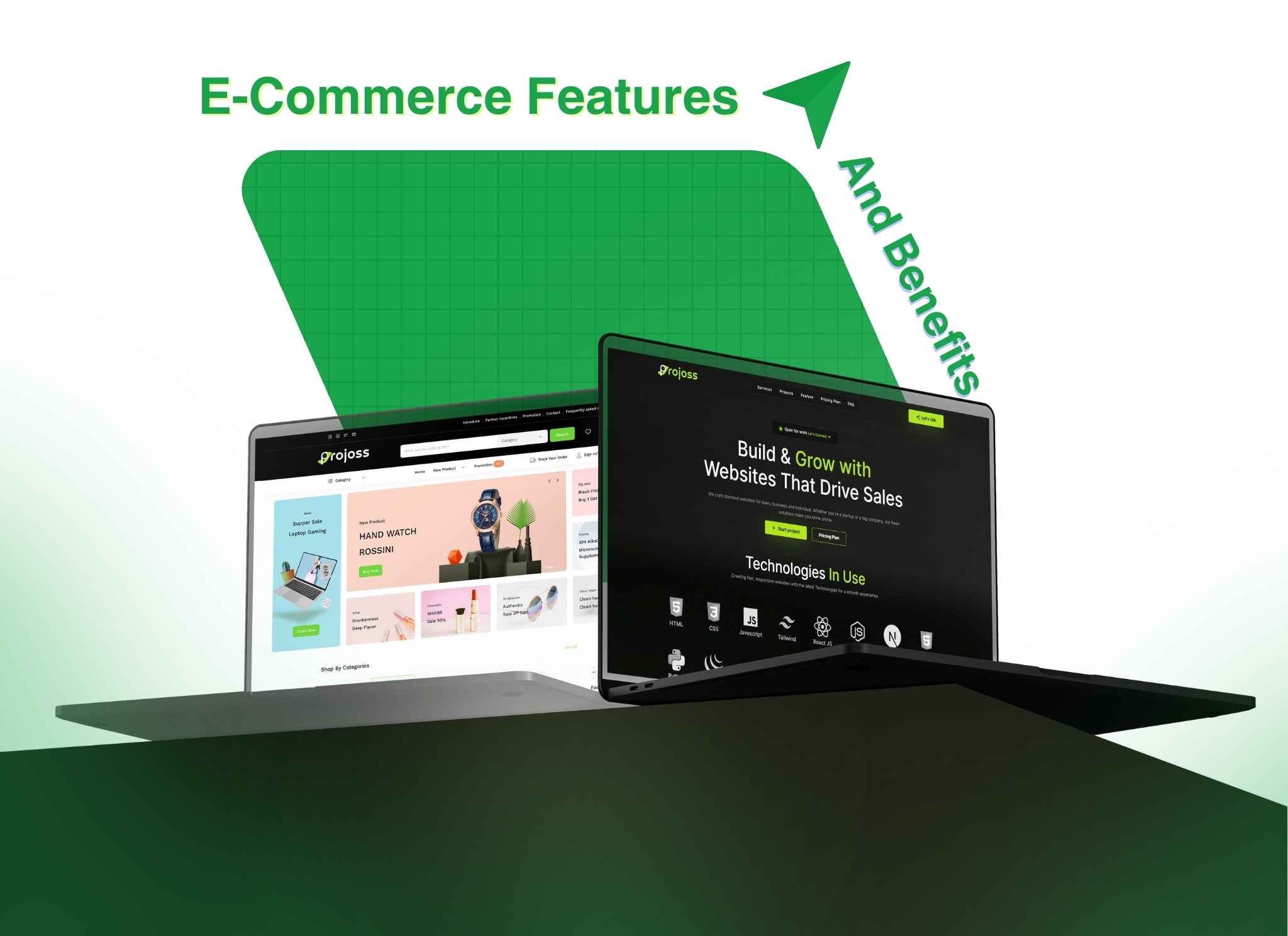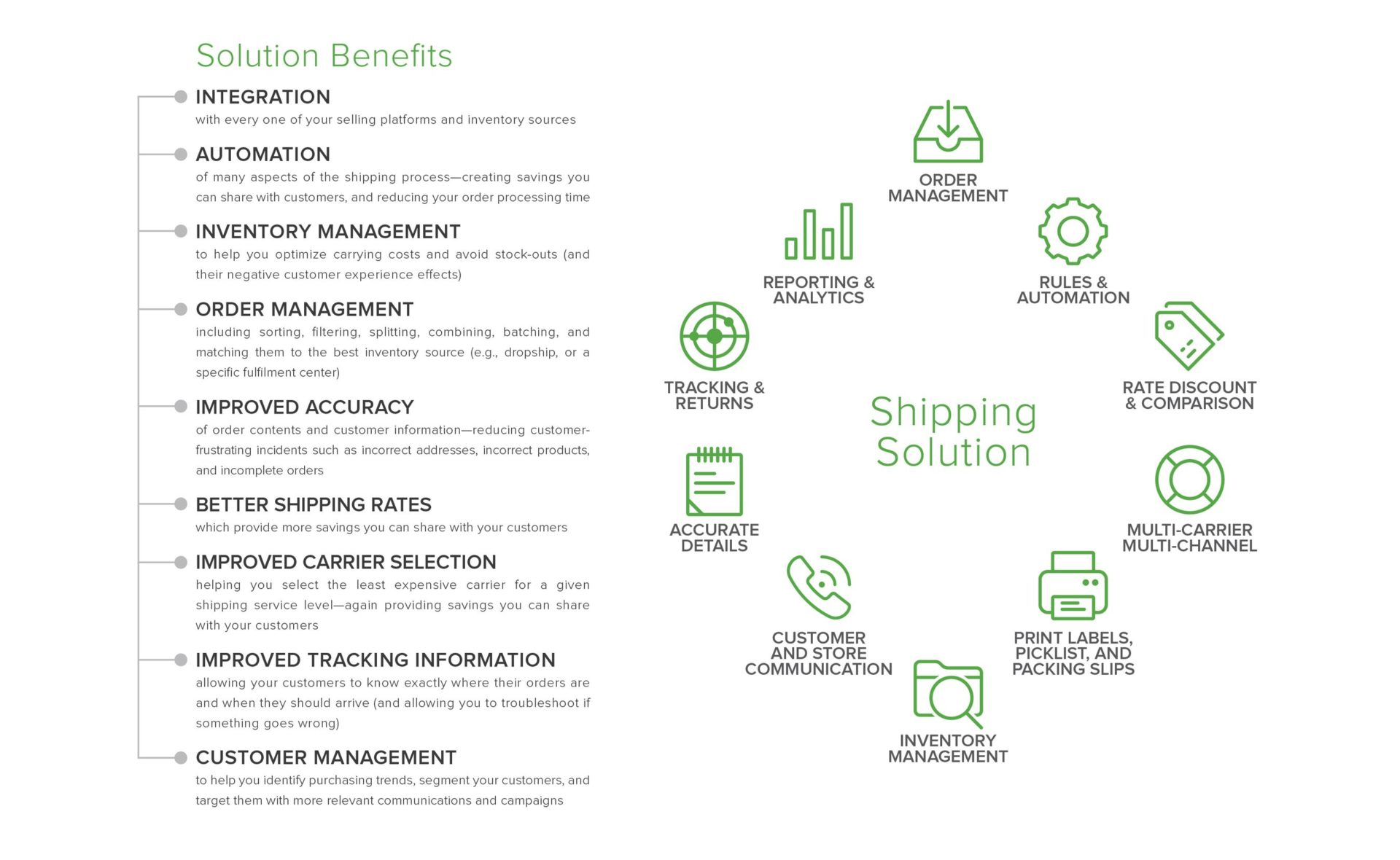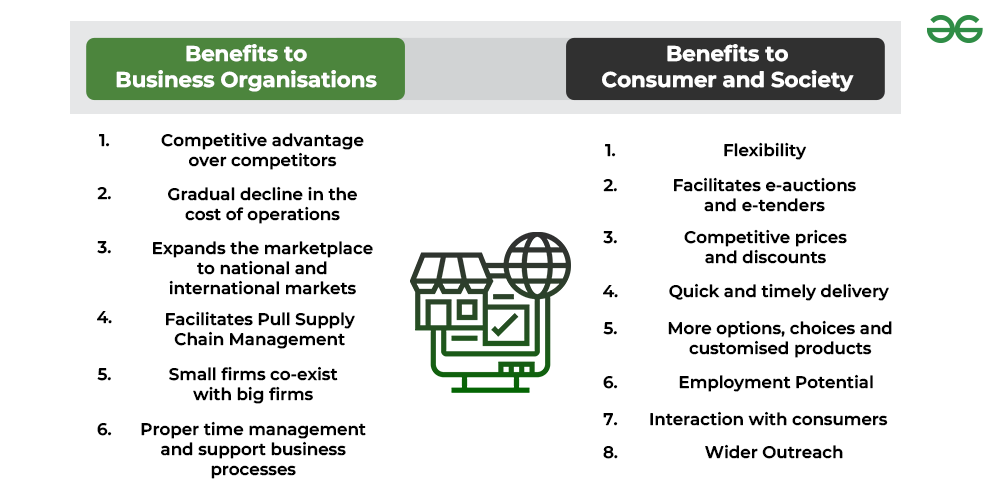Blog
E-Commerce Features And Benefits 2025

E-commerce offers convenience and accessibility, allowing customers to shop anytime and anywhere. It provides a global reach for businesses.
E-commerce has revolutionized the way we shop and conduct business. With the rise of online platforms, customers now enjoy the convenience of shopping from the comfort of their homes. Businesses benefit from a broader market reach, extending their services globally.
E-commerce platforms offer various features such as secure payment gateways, user-friendly interfaces, and personalized shopping experiences. These features enhance customer satisfaction and loyalty. The ability to track orders in real-time and access a wide range of products are additional advantages. E-commerce also reduces operational costs for businesses, making it a cost-effective solution. Overall, e-commerce continues to shape the future of retail and business transactions.
Introduction To E-commerce
The world of e-commerce has revolutionized how businesses operate. It has opened doors for many opportunities. E-commerce allows businesses to sell products and services online. This section will introduce you to e-commerce and its importance in modern business.
What Is E-commerce?
E-commerce, or electronic commerce, refers to buying and selling online. It involves transactions conducted through the internet. E-commerce platforms include websites, social media, and mobile apps.
Businesses use e-commerce to reach a broader audience. It helps to increase sales and customer base. E-commerce also includes digital products and services.
Importance In Modern Business
E-commerce plays a crucial role in modern business. Here are some key benefits:
- Global reach: Businesses can sell to customers worldwide.
- 24/7 availability: Online stores are open all the time.
- Cost-effective: Reduces the need for physical stores.
- Personalization: Offers tailored experiences to customers.
- Data insights: Tracks customer behavior and preferences.
These benefits help businesses grow and succeed. E-commerce is essential in today’s digital age. It provides many opportunities for innovation and growth.
| Feature | Benefit |
|---|---|
| Global Reach | Access to international markets |
| 24/7 Availability | Increase sales opportunities |
| Cost-Effective | Reduce overhead costs |
| Personalization | Enhance customer experience |
| Data Insights | Better understand customer needs |
Key Features Of E-commerce Platforms
E-commerce platforms are essential for online businesses. They offer various features that enhance user experience and drive sales. Understanding these key features helps businesses choose the right platform.
User-friendly Interface
A user-friendly interface is crucial for e-commerce success. It ensures customers can easily navigate the site. This leads to higher satisfaction and conversion rates.
Key elements of a user-friendly interface include:
- Intuitive navigation menus
- Clear product categories
- Easy-to-use search function
These elements make it simple for users to find products quickly. A well-designed interface also provides a seamless shopping experience. This encourages repeat visits and loyalty.
Mobile Compatibility
More shoppers use mobile devices to shop online. Having a mobile-compatible e-commerce platform is now essential. A site that adapts to different screen sizes improves user experience.
Benefits of mobile compatibility include:
- Increased accessibility
- Better user engagement
- Higher conversion rates
Ensure your e-commerce site is responsive and fast on mobile devices. This improves customer satisfaction and boosts sales.
| Feature | Benefit |
|---|---|
| User-Friendly Interface | Easy navigation and higher satisfaction |
| Mobile Compatibility | Better engagement and higher sales |
Payment Gateway Integration
Payment Gateway Integration is a crucial feature for any e-commerce platform. It allows your customers to make payments easily and securely. This integration ensures a smooth transaction process, enhancing the overall shopping experience.
Multiple Payment Options
Offering multiple payment options is essential in today’s diverse market. Customers prefer different methods to pay for their purchases. Some like using credit cards, while others prefer digital wallets.
Here are some common payment options you can integrate:
- Credit/Debit Cards
- PayPal
- Apple Pay
- Google Pay
- Bank Transfers
Providing various payment options can increase your sales and customer satisfaction.
Secure Transactions
Ensuring secure transactions is vital to gain customer trust. Security measures prevent fraud and protect sensitive information.
Key security features include:
- SSL Encryption to secure data transfer.
- PCI DSS Compliance to safeguard card information.
- Two-Factor Authentication for added security.
- Fraud Detection Tools to monitor suspicious activities.
Using these features, you can ensure your customers feel safe while shopping.
Product Management
Effective product management is crucial for any e-commerce business. It ensures smooth operations and a seamless shopping experience. From inventory tracking to product categorization, every aspect plays a vital role. Below, we delve into key components of product management.
Inventory Tracking
Keeping track of inventory is essential. It helps avoid stockouts and overstock situations. Real-time inventory tracking is a game-changer. It updates stock levels instantly after a sale.
- Ensures accurate stock levels
- Reduces human error
- Improves customer satisfaction
Use inventory tracking tools for efficiency. They integrate with your e-commerce platform. This automation saves time and reduces errors.
Consider using a table for inventory tracking:
| Product ID | Product Name | Stock Level | Reorder Level |
|---|---|---|---|
| 001 | Red T-Shirt | 50 | 10 |
| 002 | Blue Jeans | 30 | 5 |
Product Categorization
Product categorization helps customers find items easily. It enhances the user experience and boosts sales. Organize products into clear categories.
Consider the following categorization methods:
- By Product Type: Shirts, Pants, Accessories
- By Brand: Nike, Adidas, Puma
- By Price Range: $0-$50, $50-$100, $100+
Use subcategories for better organization. For example:
- Shirts
- Casual
- Formal
- Pants
- Jeans
- Chinos
Proper categorization improves navigation. It leads to a better shopping experience. Happy customers are repeat customers.
Customer Relationship Management
Customer Relationship Management (CRM) is a vital component of e-commerce. CRM helps businesses build and maintain strong customer connections. It involves understanding customer needs, preferences, and behaviors. With effective CRM, e-commerce stores can enhance customer satisfaction and loyalty.
Personalized Recommendations
Personalized recommendations make shopping easier for customers. They suggest products based on past purchases and browsing history. This feature can increase sales and customer satisfaction.
Consider the following benefits of personalized recommendations:
- Increased Sales: Customers are more likely to buy suggested items.
- Better Customer Experience: Shoppers find relevant products quickly.
- Higher Engagement: Customers spend more time on your site.
Personalization makes customers feel valued. They get a shopping experience tailored to their needs.
Customer Support
Effective customer support is crucial for any e-commerce business. It ensures customers get help when they need it.
Here are key elements of excellent customer support:
- Live Chat: Instant answers to customer queries.
- Email Support: Detailed responses for complex issues.
- Phone Support: Personal and direct communication.
- FAQs: Quick solutions to common problems.
Great customer support builds trust and loyalty. It shows that the business cares about its customers.
Customer Relationship Management in e-commerce enhances the shopping experience. It boosts sales and builds long-term customer relationships.

Credit: shippingeasy.com
Marketing Tools
In the dynamic world of e-commerce, effective marketing tools are essential. They help businesses attract customers and drive sales. Below, we explore key marketing tools that can transform your e-commerce venture.
Seo Optimization
SEO Optimization is crucial for increasing your online visibility. By optimizing your website for search engines, you can rank higher in search results. This brings more traffic to your store.
Key aspects of SEO include:
- Keyword Research: Find the terms your customers are searching for.
- On-Page SEO: Optimize your content, titles, and meta descriptions.
- Technical SEO: Ensure your site is fast and mobile-friendly.
- Backlink Building: Get links from other reputable sites.
Effective SEO can significantly boost your sales.
Email Marketing
Email Marketing is a powerful way to connect with your customers. It allows you to reach your audience directly in their inbox.
Benefits of email marketing include:
| Benefit | Description |
|---|---|
| Personalization | Send targeted messages to specific customer segments. |
| Automation | Set up automated campaigns for welcome emails, promotions, and more. |
| Analytics | Track open rates, click-through rates, and conversions. |
Effective email marketing can increase customer loyalty and boost sales. It helps keep your brand top of mind for your audience.
Data Analytics
In the bustling world of e-commerce, data analytics serves as a powerful tool. It helps businesses understand their performance and customer behavior. By leveraging data analytics, e-commerce platforms can boost sales and enhance customer experience.
Customer Insights
Data analytics provides deep customer insights that help understand buying patterns. You can segment your audience based on their purchase history. This allows you to create personalized marketing campaigns.
Knowing what your customers like can help you stock the right products. This improves customer satisfaction and can lead to repeat business.
Sales Reporting
Accurate sales reporting is crucial for tracking performance. With data analytics, you can generate detailed sales reports. These reports show which products are selling well and which are not.
Here is a simple table to illustrate sales data:
| Product | Units Sold | Revenue |
|---|---|---|
| Product A | 150 | $3,000 |
| Product B | 200 | $4,000 |
With these reports, you can make informed decisions. You can choose to promote or discontinue products based on sales data.
Data analytics is a vital feature for any e-commerce platform. It offers actionable insights and detailed reports. This helps in making informed decisions and boosting sales.

Credit: www.geeksforgeeks.org
Benefits Of E-commerce
E-Commerce has transformed how we shop. It offers many advantages for businesses and customers. Understanding the benefits can help you make the most of online selling.
Increased Reach
E-Commerce allows businesses to reach a global audience. It breaks down geographical barriers. A small store can sell to customers worldwide. This helps in increasing sales and growth.
Online stores are open 24/7. Customers can shop at any time. This flexibility boosts customer satisfaction. It also results in more sales opportunities.
Cost Efficiency
Running an online store is cheaper than a physical store. You save on rent, utilities, and other overheads. This means more profit for your business.
Marketing online is also cost-effective. Social media ads and email campaigns are cheaper than traditional ads. They also reach more people.
| Physical Store | Online Store |
|---|---|
| Higher overhead costs | Lower overhead costs |
| Limited reach | Global reach |
| Fixed operating hours | Open 24/7 |
Frequently Asked Questions
What Are The Features And Benefits Of E-commerce?
E-commerce offers 24/7 accessibility, global reach, and convenience. It reduces overhead costs, provides personalized shopping experiences, and offers detailed analytics. Secure payment methods and fast shipping enhance customer satisfaction.
What Are The 4 Biggest Advantages Of E-commerce?
E-commerce offers 24/7 availability, reaching global markets, lower operational costs, and personalized shopping experiences.
What Are The Two Essential Features Of E-commerce?
The two essential features of e-commerce are user-friendly website design and secure payment processing. A user-friendly design enhances customer experience, while secure payment processing ensures safe transactions.
What Are The Features Of An E-commerce Platform?
E-commerce platforms offer user-friendly interfaces, secure payment gateways, mobile compatibility, inventory management, and customer support tools. They also provide SEO features, analytics, and marketing integrations.
Conclusion
E-commerce offers numerous features that enhance user experience and streamline business operations. With flexible payment options and global reach, it boosts sales. Businesses can leverage analytics to understand customer behavior better. Embracing e-commerce can lead to substantial growth and increased customer satisfaction.
Start exploring e-commerce benefits today for a competitive edge.
